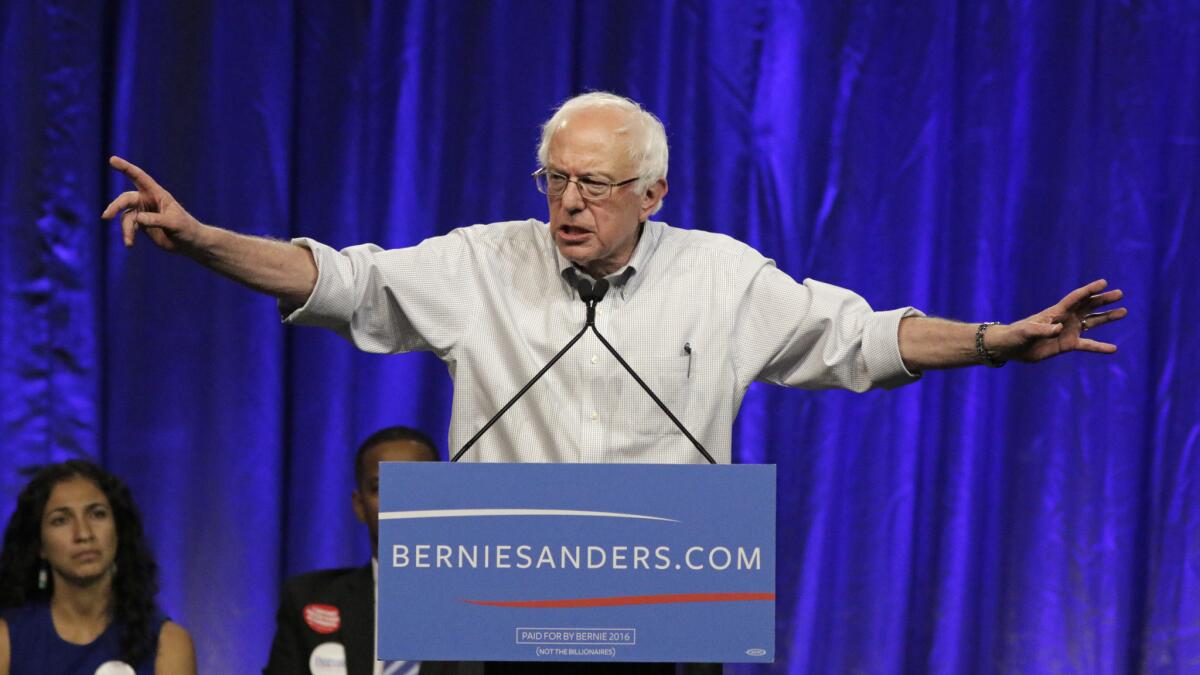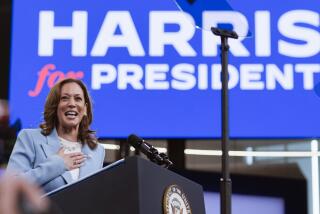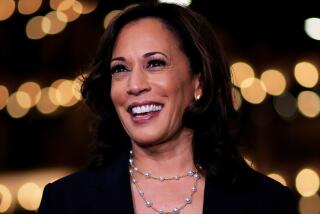Surprise, Surprise. Bernie Sanders now thinks the front-runner should get the Democratic nomination

- Share via
A lot of the initial reaction to Wednesday’s Democratic presidential debate focused on the way the candidates went after each other — a Twitter wag sent out an ad for the movie “Knives Out” — and the shaky performance by novice 2020 debater Michael Bloomberg.
But perhaps the most interesting takeaway from the debate happened toward the end. Moderator Chuck Todd asked: “Should the person with the most delegates at the end of this primary season be the nominee, even if they are short of a majority?”
Bloomberg, Joe Biden, Elizabeth Warren, Amy Klobuchar and Pete Buttigieg all answered in the negative. The yes came from Sanders, the current front-runner, and it represented something of a flip-flop.
As the Washington Post’s Dave Weigel pointed out, at the end of the 2016 Democratic campaign Sanders “(briefly) argued that superdelegates should have rejected the pledged delegate leader (Clinton) in favor of the electable candidate (him).” (Here is a Los Angeles Times story about Sanders’ appeal to superdelegates back then,)
Under rules adopted in 2018, the superdelegates — party leaders and other notables — will be able to vote on a second ballot at the convention if no candidate can command a majority of pledged delegates on the first ballot.
Superdelegates have been demonized by left-wing Democrats. But their continued existence reflects the reality that the nomination process is not a general election, or even a California-style “jungle primary” that is really the first stage of a general election. Nor are delegates the equivalent of members of the electoral college, who are bound in many states to support the winner of the popular vote in that state. On a second ballot, some pledged delegates could vote for a compromise choice.
It’s true that conventions in the modern era typically ratify the winner of the primaries and caucuses — so much so that you now see reporters using the word “primary” to describe the entire pre-convention process.
But a competitive nominating convention, not necessarily one “brokered” by a small group of party leaders, is perfectly defensible if no one clinches the nomination on the first ballot.
(Also, even if you believe nominations should reflect the will of the voters in primaries, automatically awarding it to a candidate who won only a plurality of delegates by definition discounts the votes of the majority. Ironically, activists on the left often agitate in other contexts for alternatives to a pure “winner take all” model — either ranked-choice voting or proportional representation. )
Nothing in current Democratic Party rules requires that the nomination go to the candidate with a plurality of delegates after the primary season. Even so, the idea of “winner take all” — or, as the British say, “first past the post” — is deeply ingrained in the American political consciousness. So is the notion that conventions are supposed to be rubber stamps, not deliberative bodies.
There is also the practical consideration that Sanders and his supporters would cry foul if he were denied the nomination even after winning more pledged delegates than any of his opponents. That could threaten turnout in November.
Still, in a year in which ousting President Trump is the supposedly shared priority of all Democrats, the notion that the candidate who is first past the post has a right to the nomination needs to be questioned.
More to Read
A cure for the common opinion
Get thought-provoking perspectives with our weekly newsletter.
You may occasionally receive promotional content from the Los Angeles Times.










